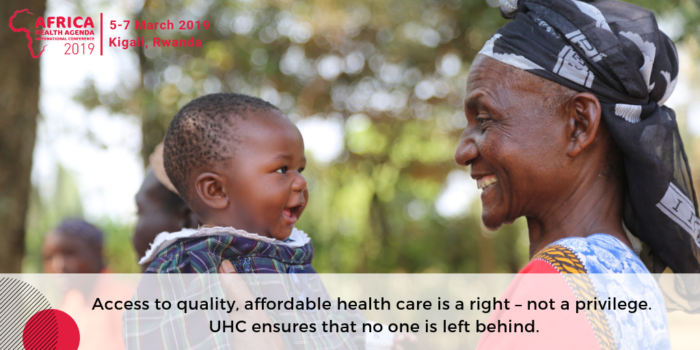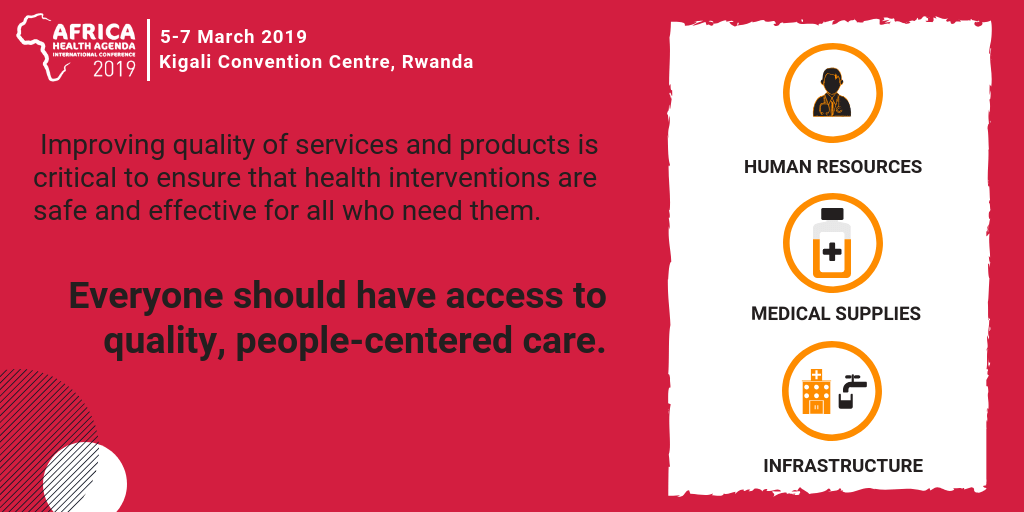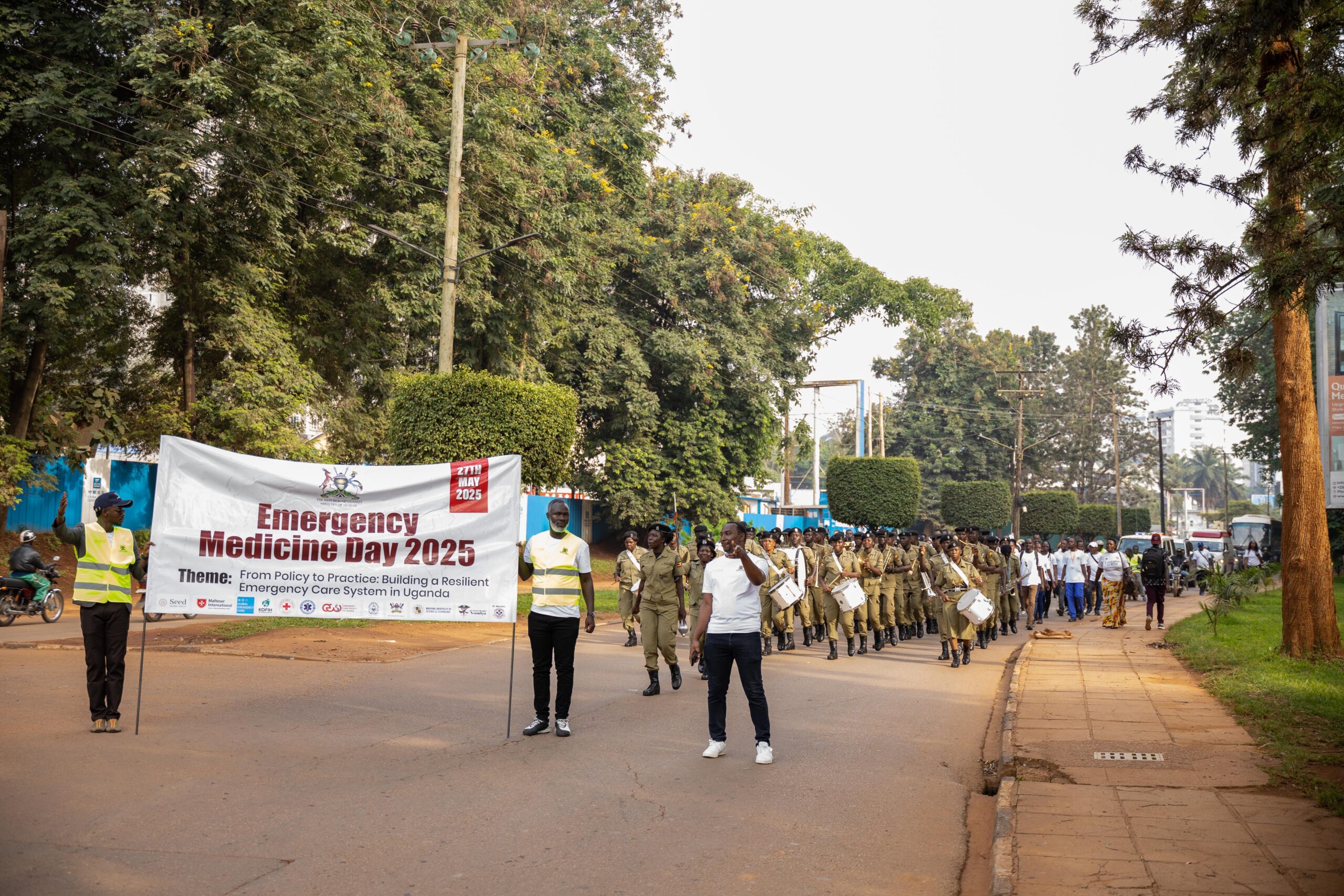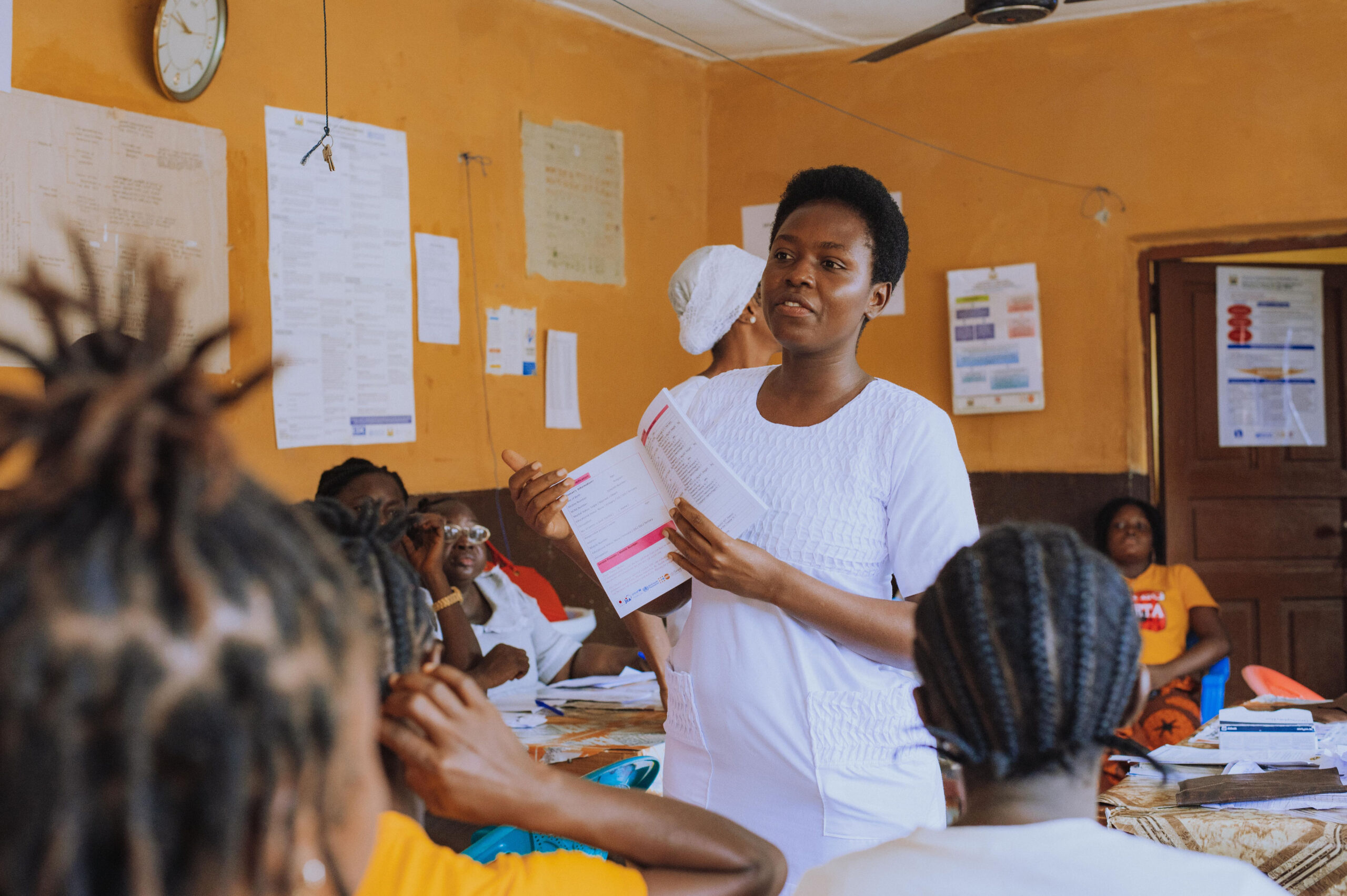#ICYMI: Highlights from the Africa Health Agenda International Conference
Held in Kigali, Rwanda, the Africa Health Agenda International Conference brought together over 1,500 participants to discuss home-grown solutions to the most pressing health challenges that African countries face, with a focus on achieving universal health coverage (UHC) by 2030. The conference participants, who represented 47 countries, discussed topics ranging from delivering care in diverse settings to financing the expansion of UHC.
In case you missed it, here are some of the highlights from conference:
DAY ONE:
Dr. Tedros Ghebreyesus, the World Health Organization Director-General, gave video remarks that emphasized the need for using holistic approaches and engaging all sectors of society to ensure that people get the health care they need and deserve.
Professor Philip Cotton from the University of Rwanda got the day off to a great start yesterday with a provocative pre-plenary special lecture on morality and health. He literally climbed over chairs in the plenary hall to demonstrate that “nothing must stand in our way to get to the people we want to reach.”
In Plenary I, experts discussed the next frontiers in primary health care as a key pathway to achieving UHC. “It’s time to go to scale on primary health care,” noted Dr. Jean Kagubare from the Bill & Melinda Gates Foundation. Rwanda, where more than 90 percent of the people are insured, has already shown that this is possible.
“Access to health care should not be a lottery of where you are born and how wealthy your family is,” noted Dr. Githinji Gitahi, Group CEO of Amref Health Africa, in a compelling speech at the Opening Ceremony. The highlight of the ceremony was no doubt the cross-generational discussion led by Marie Claire Wangari, a representative from the Youth Pre-Conference, who asked her elders to sit on the stage steps for an informal discussion among equals.
During the morning’s Inter-Ministerial Panel, high-level representatives from the Health Ministries of Rwanda, Ethiopia, Kenya, and Uganda shared their countries’ progress on UHC and the role of the private sector, community health workers, and individuals in achieving health for all.
Health leaders were recognized for their commitment to advancing health for all in their countries and their exemplary efforts to expand health care access to their populations. Hon. Dr. Diane Gashumba, Minister of Health, Rwanda, received the UHC Presidential Champion award on behalf of HE Paul Kagame, President of Rwanda. Hon. Dr. Amir Aman, Minister of Health, Ethiopia, accepted the UHC Ministerial Champion award.

DAY TWO:
During Plenary III, we discussed how to finance the expansion of UHC. Yacine Sambe Diouf, from the Ministry of Economy and Finance in Senegal, gave health advocates expert advice on how to better engage with finance ministries: understand competing priorities for different sectors, allow time for gradual budget increases, and demonstrate results for the money that is already allocated. We were also delighted to hear that Senegal is planning to meet the Abuja Declaration target of dedicating 15 percent of the state budget to health in three years.
Hon. Dr. Diane Gashumba opened Plenary IV on access to care, in conversation with Senait Fiseha Alemu, a Health Extension Worker from Ethiopia. They discussed ways to motivate community health workers, including performance-based remuneration, education and professional development opportunities, and the importance of community recognition. Raj Kumar, Founder and Editor-in-Chief, Devex, then led a dynamic and interactive discussion about how to move “reaching the last mile” from slogan to action.
Over lunch, more than 70 private sector leaders gathered to provide key inputs to the UHC2030 Consultation for the High-level Meeting on UHC which will be held at the UN General Assembly on 23 September 2019.
HE Toyin Saraki, Founder-President of The Wellbeing Foundation Africa, Hon. Sarah Opendi, State Minister for Health, Uganda, and others joined together for a great conversation about social accountability for UHC, hosted by PATH and Amref Health Africa. “We must match the intelligence and knowledge of communities with global innovation. Too often national or global policy decisions simply don’t make it effectively to the frontline,” said HE Saraki.
During a session on community-led innovation to advance UHC in Africa and Asia, Dr. Priya Baasubramaniam, Senior Public Health Scientist, Public Health Foundation of India (PHFI) noted that “the future of health systems and UHC will rest on regional sharing between countries with similar contexts.” Small group discussions during this session–hosted by Amref Health Africa, Takeda, and PHFI–focused on community health systems strengthening, innovation, financing, and partnerships to advance UHC.
We wrapped up the day with a satellite session hosted by us, Seed Global Health. Our panelists Dr. Mulinda Nyirenda, Mildred Asusi, Dr. Joseph Kalanzi, and John Bosco Kamugisha, moderated by our Uganda Country Director Dr. Bonaventure Ahaisibwe, examined the role of emergency care as an essential delivery mechanism within UHC. Based on our experience in Malawi and Uganda, they discussed the importance of investing in health education, practice, and policy to strengthen health systems to integrate emergency care along the service delivery continuum.

DAY THREE:
Plenary V kicked off with a compelling conversation on how to define and improve quality care across diverse settings. As panelist Dr. Mariam Dahir, Health Systems Strengthening Advisor and Medical Practitioner, Somaliland, noted, “If the patient cannot accept the care, then it is not quality–we need to deliver quality care that meets the needs of the patient.” The panel discussions focused on the importance of data, measurement, and community-based interventions to improving quality of care.
The plenary continued with an exciting panel on innovations that are driving change and leapfrogging progress towards UHC in Africa. These include mobile phone technologies to put people in touch with doctors and quality care when they need it; robotics and artificial intelligence to facilitate health care delivery; strategies to leverage existing product supply chains to deliver essential medicines; drone technology to deliver blood products to remote communities; and digital innovations to reach the last mile and advance health equity, such as electronic immunization registries that give frontline health workers data on each child at their fingertips.
Dr. Kibachio Joseph Mwangi, who heads the fight against noncommunicable diseases (NCDs) at the Kenyan Ministry of Health, started off Plenary VI by sharing his own family’s struggles to demonstrate the social and financial burden of NCDs. When his own mother fell ill with cancer, she asked him three questions:
- Why should me being ill come at the expense of my granddaughters?
- Why can’t the government talk to drug manufacturers to lower the price of drugs?
- Who will take care of you, my son?
The plenary brought together a diverse group of speakers to consider the power of public-private partnerships to drive access and quality of health services, using examples from Gavi, MSD for Mothers, IFPMA, Nutrition International, and more.
Perhaps the most rousing session was the Closing Ceremony, dedicated to women who are changing the world from the community level to the halls of global policymaking. The audience embraced each and every one of the amazing panelists–Katja Iversen, CEO of Women Deliver; Amina Jama Mahmoud, Founder of Women in Global Health Somalia; Professor Miriam Were, Champion for an AIDS-Free Generation; and Cynthia Oning’oi, a passionate advocate against female genital mutilation (FGM), who received a standing ovation for her moving speech about her fight to end FGM.
The Women in Global Health (WGH) Africa Chapter was announced in a signing ceremony between Amref Health Africa’s Dr. Githinji Gitahi and WGH Co-founder and Executive Director Dr. Rhoopa Dhatt. All conference attendees are welcome to join it!
On the eve of International Women’s Day, several women were recognized for their leadership and tireless work in global health: Senait Fiseha Alemu, a Health Extension Worker from Ethiopia; Nice Nailantei, Global End-FGM Ambassador; Prof Miriam Were, Champion for an AIDS-Free Generation; Hon. Dr. Diane Gashumba, Rwanda Minister of Health; and Katja Iversen, CEO of Women Deliver.
At the closing ceremony, representatives from the Youth Pre-Conference presented the draft of the Africa Health 2019 conference communiqué, which will be finalized next month after consultation with stakeholders.
Finally, 11 parliamentarians from Ghana, Kenya, Rwanda, Senegal, Tanzania, and Zambia launched the Kigali UHC Communiqué, committing to strengthen health systems, address health inequities, support community health, and ensure universal access to immunization to drive progress on UHC in their countries. We are heartened by the strong political leadership on UHC we saw throughout the conference.
*For details on the difference conference sessions, visit AHAIC’s Book of Abstracts.
*Credit for all the images: AHAIC.

